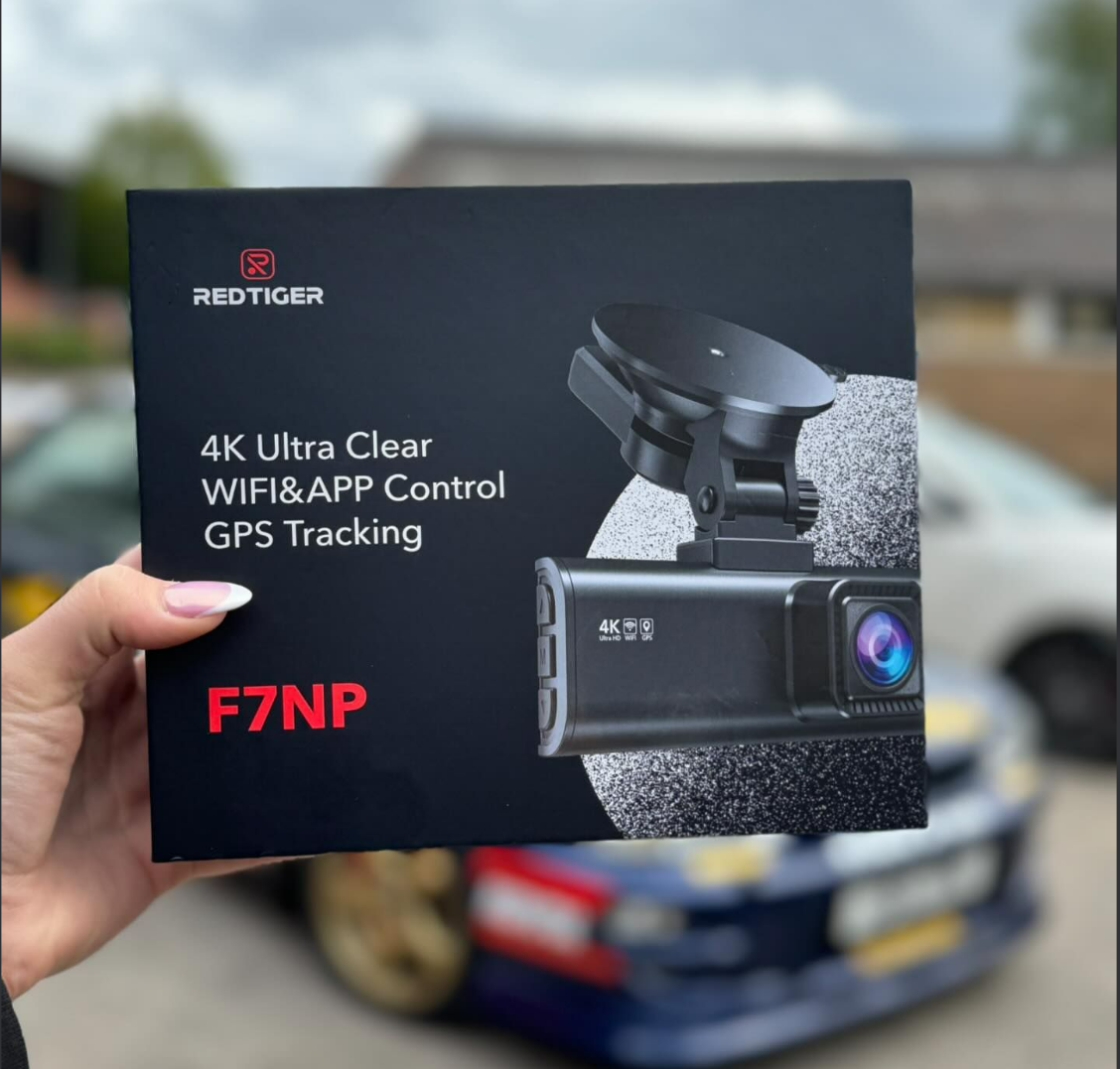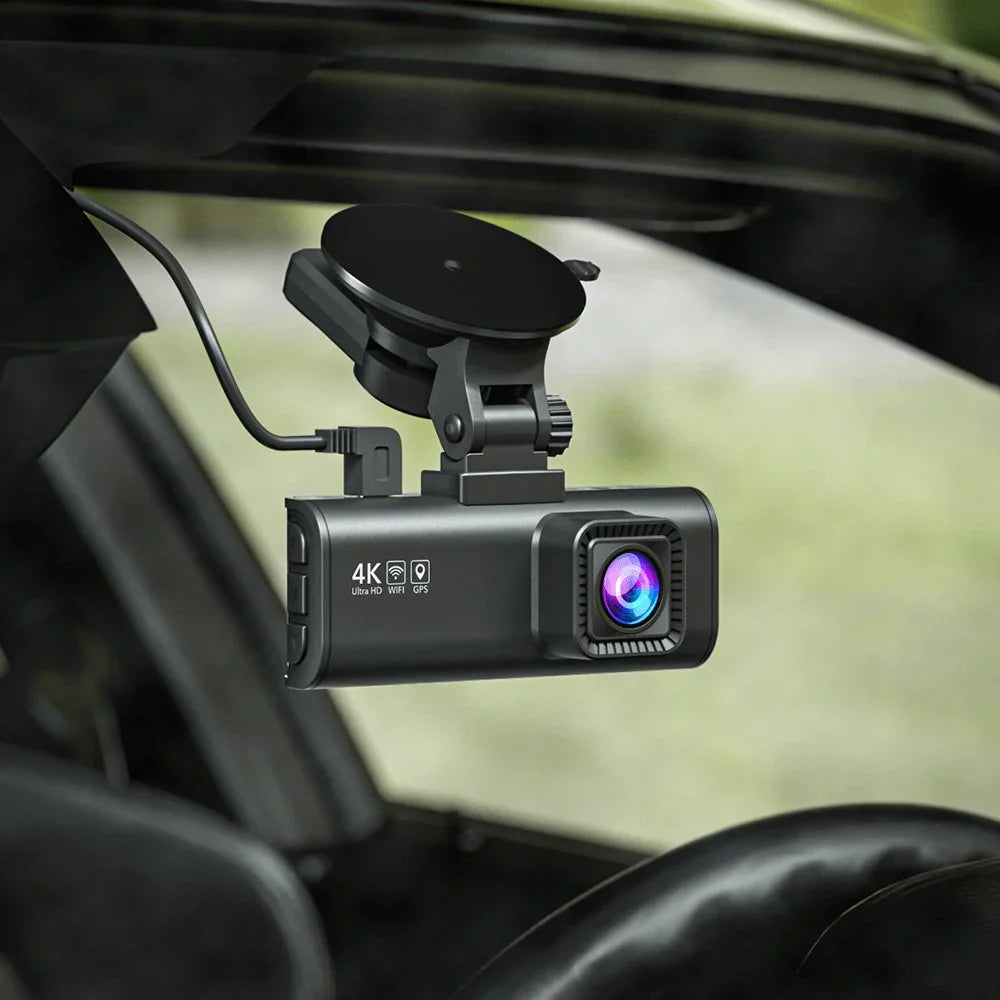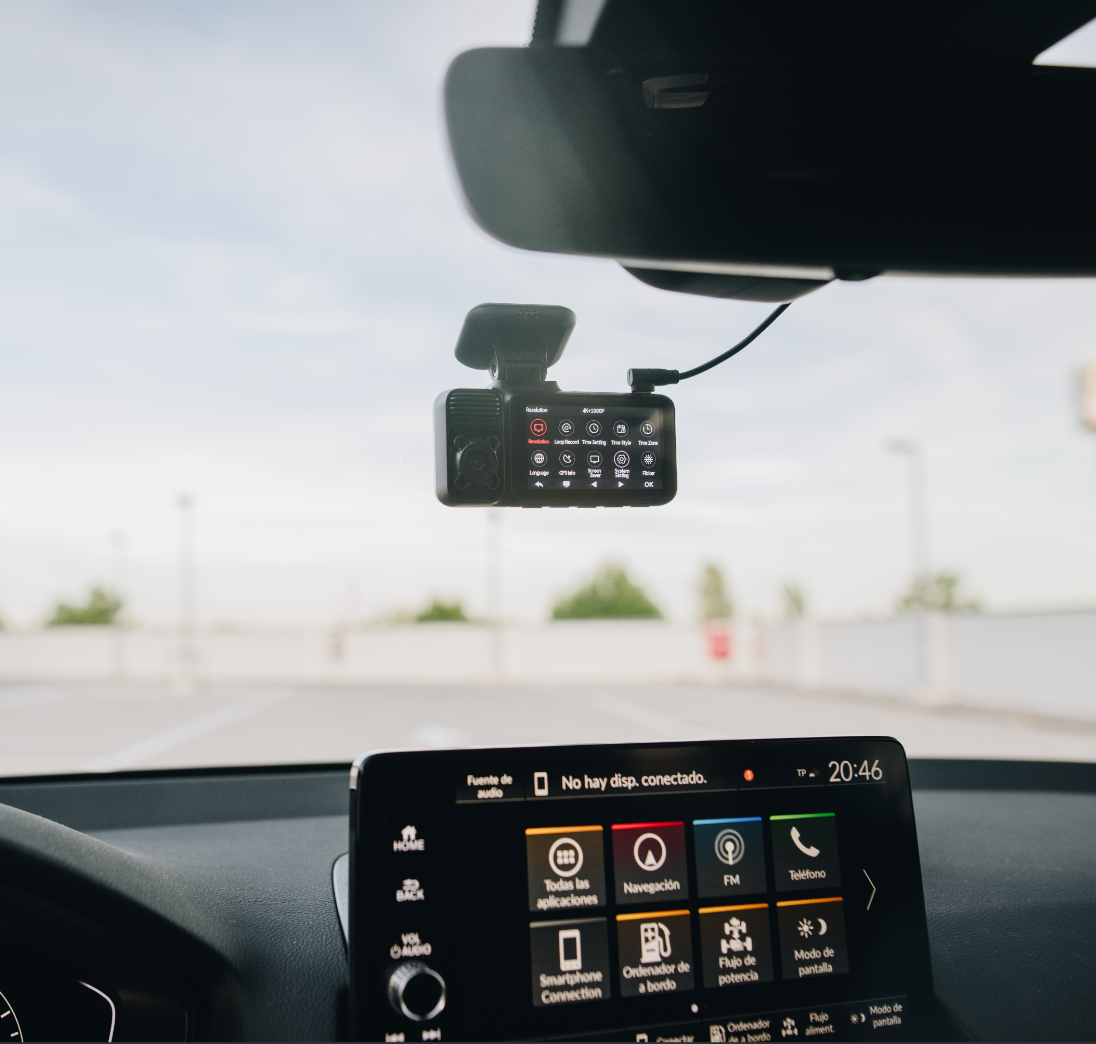Many modern dashcams are designed to operate even when your car is turned off. This feature is often referred to as "Parking Mode."
In this mode, the dashcam monitors your vehicle's surroundings and records any incidents, such as break-ins or hit-and-runs.
Parking Mode is typically activated through motion detection or impact G-sensors, ensuring that the dashcam only records relevant events, thus conserving storage space and power.
Or keep recording at a lower frame rate so you can quickly browse what happened around your vehicle that night, which is called time-lapse.
Why You Need a Dashcam That Remains Recording When Car is Off?
Having a dashcam that records when your car is off can provide significant benefits. Firstly, it offers continuous surveillance, which is crucial for evidence collection in case of vandalism, theft, or accidents that occur while parked.
Secondly, it enhances your peace of mind, knowing that your vehicle is being monitored at all times. Lastly, some insurance companies offer discounts to policyholders who use dashcams with continuous recording capabilities, as they can help in claim disputes.
Which Kind of Dashcam Performs Better When Parking?
Not all dashcams are created equal when it comes to recording while parked. Dashcams with a dedicated Parking Mode feature with Front and Rear Camera generally perform better. These dashcams often have built-in G-sensors and impact detection to trigger recording automatically.
Additionally, dashcams with higher resolution like 4K dash cam and better night vision capabilities provide clearer footage, which is crucial for identifying details in low-light conditions.
Models with dual cameras front and rear offer comprehensive coverage, can perform better than a single front dash camera, making them ideal for parking surveillance.
How to Make Sure Your Dashcam Keeps Recording When the Car is Off?
To ensure your dashcam keeps recording when your car is off, you need to consider its power supply. Most dashcams can be powered through two main methods: the cigarette lighter socket or hardwiring to the vehicle's fuse box.
Hardwiring is generally preferred for continuous recording as it provides a more stable power source. When your vehicle is turned off, the dash cam can switch to vehicle battery power, and the hardwire kit with low-voltage protection function ensures that it does not deplete your vehicle's battery.
Additionally, using a backup battery pack specifically designed for dashcams is another option, it can prevent your vehicle's main battery from draining and ensure uninterrupted operation.
What is the Difference Between Cigarette Lighter and Hardwire Kit?
The cigarette lighter socket provides a convenient power source but typically only supplies power when the ignition is on. This means that unless your car’s socket provides constant power, the dashcam will not record when the car is off.
In contrast, a hardwire kit connects the dashcam directly to the car's fuse box, allowing it to draw power even when the ignition is off. This setup is essential for enabling Parking Mode and continuous recording, providing a more reliable and permanent solution.
| Cigarette Lighter | Hardwire kit |
| Only working during ignition | Work even when the ignition is off |
| No low-voltage protection | With low-voltage protection |
Does Hardwire Installation Drain the Car Battery?
No, one common concern about hardwiring a dashcam is the potential for draining the car battery. However, most modern hardwire kits come with built-in voltage cut-off features, which was called low-voltage protection.
This feature monitor the car battery's voltage level and automatically shut off the dashcam if the voltage drops below a certain threshold, thereby preventing battery drain, ensuring that your main car battery remains unaffected.
Can Dashcams Be Used as Car Security Cameras?
Yes, dashcams can effectively serve as car security cameras, especially when equipped with Parking Mode. They provide continuous monitoring and can capture evidence of suspicious activity around your vehicle.
Some advanced dashcams also offer smart phone and app control, allowing you to browse your album through a smartphone app. This added functionality makes dashcams a versatile and valuable tool for vehicle security.
Conclusion
In conclusion, having a dashcam that records when your car is off provides significant advantages in terms of security and peace of mind. By selecting a model with a reliable Parking Mode and ensuring proper installation—preferably through a hardwire kit—you can maintain continuous surveillance of your vehicle.
This setup not only helps in capturing crucial evidence during incidents like vandalism or hit-and-runs but also mitigates concerns about battery drain with advanced voltage cut-off features. Investing in a capable dashcam ensures your vehicle is always protected, offering valuable support in insurance claims and enhancing overall safety.
Common FAQs about Parking Monitor
1. Can I use a battery pack to power my dashcam when the car is off?
Yes, using a dedicated battery pack for dashcams can provide power when the car is off and prevent draining the car's main battery.
2. Can a dashcam record audio when the car is off?
Yes, many dashcams like Redtiger F7NP can record audio along with video when the car is off, but this feature depends on the its settings.
3. How long can a dashcam record in Parking Mode?
The recording duration in Parking Mode depends on the dashcam’s power source and storage capacity. With a hardwire kit, it can continuously record 24 to 48 hours.
4. What features should I look for in a dashcam for nighttime parking surveillance?
For nighttime parking surveillance, a dashcam with good low-light performance like 4K resolution and high dynamic range (HDR) are perfect features to capture clear footage in the dark.
5. How does impact detection work in Parking Mode?
Impact detection uses G-sensors to detect sudden movements or shocks, such as a collision or vandalism, and triggers the dashcam to start recording immediately.





Leave a comment
All comments are moderated before being published.
This site is protected by hCaptcha and the hCaptcha Privacy Policy and Terms of Service apply.